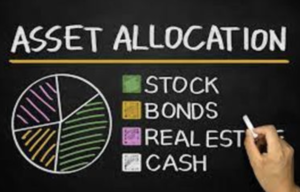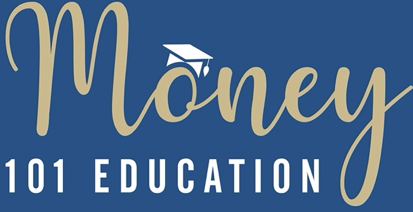
Five classes focusing on how to allocate your money appropriately in Cash, Stocks and Bonds, How to do Fund Research using Morningstar, Retirement Planning and Understanding 401K fund choices.
Class 1: Cash and Stocks
- Why is having a written personal budget essential before you start investing?
- What are the different “piles” of money that you need?
- What do you mean by “opportunity cost”?
- How much should be kept in an emergency fund?
- What is the difference between a checking, savings, money market and certificate of deposit?
- How should emergency funds be kept?
- What is FDIC insurance, and what does it cover? Are stocks and bonds covered by FDIC insurance?
- When you have competing needs, i.e. emergency fund, payment of debt, and retirement investments, what should you focus on first?
- What are the five standard Asset Classes?
- FOCUS on STOCKS – What is a stock? What is an equity?
- How many public companies are there in the world in which you can invest? How many are based in the United States?
- What rights and benefits do I get by being a stockholder?
- What are the key responsibilities of a company Board of Directors?
- What is a return of profit to shareholders called?
- Do all companies pay dividends? What is meant by “reinvestment of dividends”?
- How are companies classified – stock characteristics including DOMICILE (United S vs International) MARKET CAPITALIZATION (size of companies) OUTLOOK (growth vs value stocks) and SECTORS (industry).
Class 2: Bonds and Diversification of your Portfolio Depending on When You Need Your Money
- What is a bond?
- Who issues bonds?
- What are the four key classifications of bonds: Issuing entity & their credit rating, term of bond, interest rate on bond, tax status (taxable vs tax-exempt).
- How do interest rates effect bond prices? What is the relationship?
- How do people sell bonds before they reach “maturity”?
- What do these Bond vocabulary words mean terms: face value, discounted value, coupon rate, interest rate, interest payment frequency, term of bonds.
- Review returns and volatility for stocks and bonds.
- How to determine an appropriate Stock/Bond ratio diversification based on when you need the money.
- Discuss other Asset classes, REIT and COMMODITIES
Class 3: Key Fund Metrics to Research, and How to Research for Free
- Should I buy individual stocks or funds?
What is the difference between a Mutual Fund and an Index Fund? - Which fund is more expensive to manage Mutual Fund or Index Fund? Which is better?
- What is an “electronic traded fund” and how does it differ from a Mutual fund?
- What a “benchmark category”? – how many are there?
- What is an Asset Allocation Fund? What are the benefits?
- What is a Target Date fund – and what are the benefits?
- What is an “Intelligent Portfolio”
- How to use Morningstar to investigate funds including: portfolio composition, performance, expense ratio, and risk.
HOMEWORK – do research and determine the best fund for your retirement goals.
Class 4: Choosing a Fiduciary, How to Minimize Fees, Buy and Hold Strategy
- Comparison of popular fund metrics using Morningstar for Asset Allocation and Target Date Funds.
- The difference between a “Fiduciary” and fund selection.
- Popular Apps that are actually middlemen
- Criteria in selecting a fiduciary/investment firm,
- How are fees charged by brokers, and how to avoid fees.
- Creeping cost of Asset Under Management fees.
- What is a Buy and Hold philosophy?
- What is meant by “reinvesting dividends”?
- Setting up automatic investments.
HOMEWORK – open up an investment account.
Session 5: Tax Consequences, Understanding a 1099 from your Fiduciary
- Tax issues arise with investing, interest income, dividend income, and capital gains income.
- How to read a 1099 form issued by your investment firm.
- What is the difference between a Roth or a traditional IRA – which is better?
- What is a Required Minimum Distribution (RMD)?
- How to handle an inherited IRA?
- Where to get more FREE and reliable investment info
